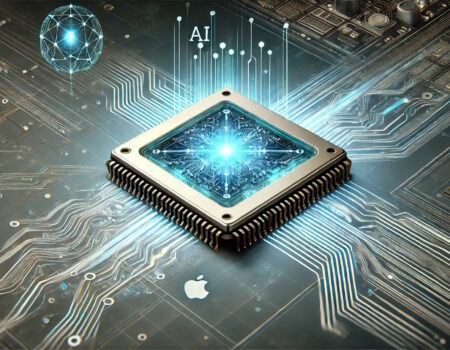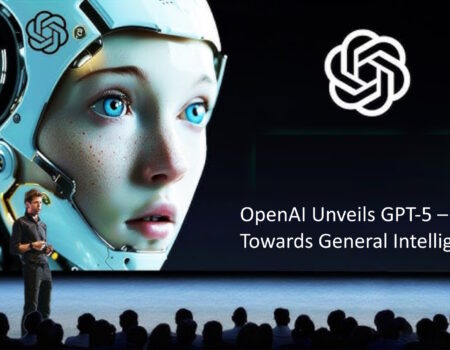Since the dawn of civilization, humans have sought ways to push the boundaries of knowledge and innovation. From the invention of the wheel to the marvels of the digital age, every breakthrough has carried both the promise of progress and the potential for peril. Artificial Intelligence (AI) is no different. Much like the legendary Samudra Manthan (the churning of the ocean) from Hindu mythology, AI has emerged as a powerful vessel, containing both nectar and poison for humanity.
The Nectar of AI: Boundless Possibilities
The “nectar” within AI is evident in its transformative impact on various sectors:
-
Healthcare Revolution
AI-driven diagnostics, robotic surgeries, and personalized medicine have brought unprecedented advancements in healthcare. AI helps detect diseases early, recommends treatments, and even predicts potential health risks, enhancing the quality of life. -
Automation and Productivity
From manufacturing to customer service, AI-powered automation has streamlined operations, reducing human effort and improving efficiency. Businesses can achieve more in less time, leading to economic growth and prosperity. -
Enhanced Creativity and Innovation
AI is not just a tool for automation but also a catalyst for creativity. AI-generated art, music, and literature showcase the fusion of human imagination with machine intelligence, unlocking new dimensions of creative expression. -
Smart Assistants and Everyday Convenience
AI-driven personal assistants like Siri, Alexa, and Google Assistant have revolutionized the way we interact with technology. From managing schedules to providing instant answers, AI enhances convenience in daily life. -
Scientific and Space Exploration
AI aids in decoding the mysteries of the universe. From predicting climate change patterns to assisting in space missions, AI-powered algorithms help scientists make groundbreaking discoveries.
The Poison of AI: A Double-Edged Sword
However, like the poison (Halahala) that emerged during Samudra Manthan, AI also brings risks that humanity must navigate wisely:
-
Job Displacement and Economic Inequality
While automation improves efficiency, it also threatens millions of jobs. The rapid adoption of AI may widen the gap between skilled and unskilled workers, leading to economic disparities. -
Privacy Concerns and Surveillance
AI-powered facial recognition and data analysis raise concerns about mass surveillance and privacy violations. The misuse of AI for monitoring individuals without consent poses serious ethical dilemmas. -
Bias and Discrimination
AI systems are only as unbiased as the data they are trained on. If trained with prejudiced data, AI can reinforce and amplify discrimination, affecting hiring processes, law enforcement, and social justice. -
Deepfakes and Misinformation
AI-generated deepfake videos and manipulated content pose a significant threat to truth and democracy. The spread of misinformation can lead to political instability, social unrest, and loss of trust in digital content. -
Uncontrollable AI and Ethical Dilemmas
The rise of autonomous AI systems, including AI-driven weapons, raises concerns about the loss of human control. If AI systems evolve beyond human understanding, ensuring ethical decision-making becomes a challenge.
Finding the Balance: The Role of Humanity
The story of Samudra Manthan teaches us that wisdom lies in managing both nectar and poison. Lord Shiva consumed the poison to save the world, while the gods distributed nectar carefully. Similarly, humanity must take responsibility for AI’s ethical development and usage.
-
Regulations and Governance
Strong global policies and AI regulations are necessary to prevent misuse while encouraging innovation. Governments and organizations must collaborate to create responsible AI frameworks. -
Ethical AI Development
AI should be designed with fairness, transparency, and accountability in mind. Developers must work towards reducing biases and ensuring that AI serves all of humanity equally. -
Human-AI Collaboration
Instead of fearing AI, we should focus on human-AI collaboration. AI should be seen as an assistant rather than a replacement, complementing human skills rather than replacing them. -
Awareness and Education
AI literacy should be promoted among the masses. Understanding AI’s impact can help individuals make informed decisions about their data privacy, career choices, and digital interactions.
Conclusion: A Choice for Humanity
AI is neither purely good nor entirely evil—it is a tool shaped by how we use it. Whether AI becomes a divine nectar that enriches lives or a toxic poison that endangers humanity depends on our choices. If handled responsibly, AI can lead us to a future of unprecedented growth and innovation. But if misused, it could create challenges beyond our control.
Just as the gods and demons churned the ocean for its hidden treasures, we too must navigate the turbulent waters of AI, ensuring that what we extract benefits all of humanity. The power is in our hands—how we wield it will determine our future.




No Comment! Be the first one.